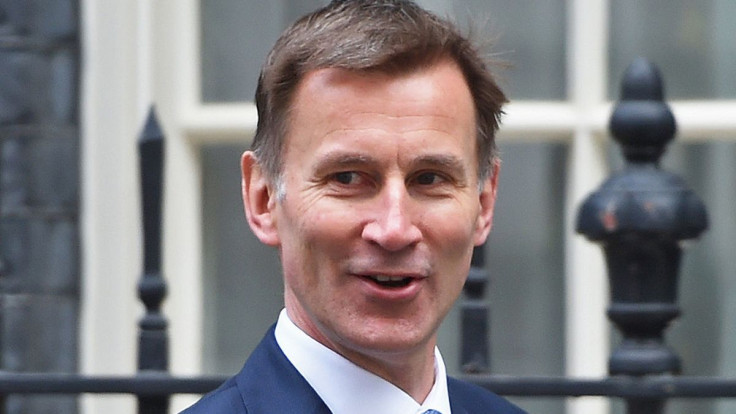UK Consumer Inflation Rate Unexpectedly Decreases In November
Jeremy Hunt says that wages will go up as prices go down next year after it was announced that the rate of inflation has decreased to 3.9 per cent.

This morning, Wednesday 20 December, the Office For National Statistics announced that, in the last month, the annual rate of increase in consumer prices has dropped by almost 1 per cent.
The inflation rate in October was measured at 4.6 per cent, but in November, the rate had decreased to 3.9 per cent.
The rapid drop has been dubbed as an unexpected slowing, after a Reuters poll published earlier this year, conducted by a team of economists, predicted that the increase in consumer prices will be at 4.4 per cent in November.
An Economist at the consultancy firm Pantheon Macroeconomics, Samuel Tombs, called the decrease in consumer price inflation a "surprisingly sharp fall".
With British inflation plunging to the lowest rate it has been in two years, investors have predicted that the Bank of England will cut interest rates at the start of 2024.
In agreement with the investors, Tombs also said that he expects that the new inflation rate has made it more likely that the Bank of England will cut rates in the first half of next year, which would be "far earlier than it has been prepared to signal so far".
So far, the optimistic expectations for next year reference to a 0.25 per cent cut by May and rates falling by a further 1.34 per cent by the end of 2024.
The anticipated decrease that is expected to occur throughout 2024, is up from the 1.07 percent decline predicted by investors last Friday.
According to the Economist at Pantheon Macroeconomics, consumer price inflation looks as if it is set to fall "far more quickly' than the Bank of England's Monetary Policy Committee predicted in November.
The change in inflation rate also marks the first time that Britain has matched France with its headline rate of inflation, after the immediate effects of Brexit and the COVID-19 pandemic propelled the UK into a cost-of-living crisis.
However, out of any of the Group of Seven advanced economy members, Britain's almost 21 per cent increase in consumer prices since 2020 remains the largest.
Across western Europe, the rate of inflation in the UK is also the joint highest.
Jeremy Hunt, the Chancellor of the Exchequer, welcomed the positive data that has prompted home amongst not only investors but also the British public.
The decrease in inflation shows that "we are starting to remove inflationary pressures from the economy", he said.
The UK economy is finally "back on the path to healthy, sustainable growth", Hunt said, noting that the financial progress could lead to personal taxes being cut in the spring of 2024 – ahead of the next general election.
The Chancellor went on to attribute the drop in prices to the "very difficult decisions" that the UK government have made on taxes.
"Many families are still struggling with the high prices so we will continue to prioritise measures that help with cost-of-living pressures," Hunt continued, going on to recognise: "The only way that we can make life better for families who are working very hard and feeling that they are in our cost-of-living crisis, the like of which they hadn't seen for many, many years, is to get the economy growing sustainably."
In a bid to support working-class and low income households across the UK, Hunt said that Prime Minister Rishi Sunak must stick to his promises and continue to "bring down inflation".
So far, Sunak "has more than delivered that", the Chancellor added, explaining that once the inflation rate on consumer prices has decreased even more so, Sunak will focus on the "hard work to squeeze inflation out of the system".
Next year, according to Hunt, the British public can "start looking forward to the kind of growth that will see people's wages going up".
© Copyright IBTimes 2025. All rights reserved.






















